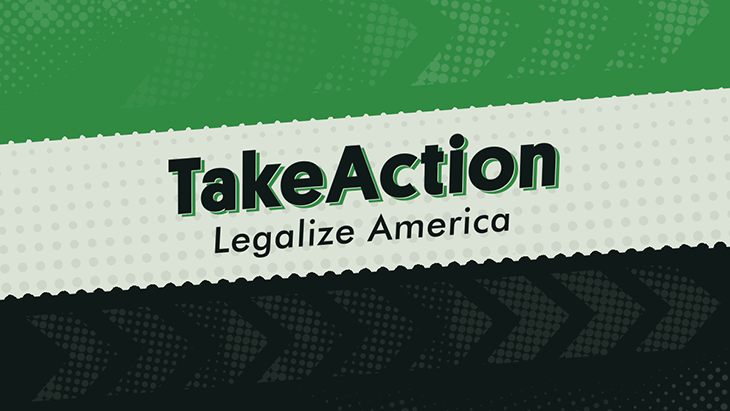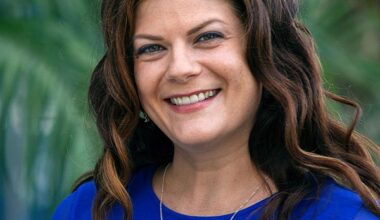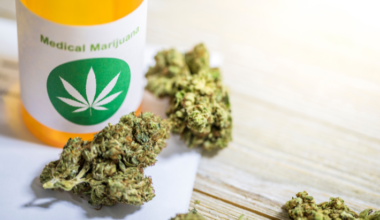Updates on filed and moving legislation over the last week.
FLORIDA
Legislation has been filed to expand eligibility to allow those with certain prior cannabis convictions to get their records cleared.
SB 1488 would allow individuals convicted of misdemeanor offenses involving the possession of up to 20 grams of marijuana to petition the court to get their record expunged.
Send a message to your lawmakers in support of this effort.
ILLINOIS
Legislation has been assigned to committee to regulate public on-site marijuana consumption for adults.
House Bill 144 would allow “a county or municipality to issue licenses for temporary events, cannabis clubs, and cannabis tours that will allow for the sale and consumption of cannabis or cannabis-infused products and for the sale of cannabis paraphernalia at such temporary events, clubs, or tours.”
House Bill 715 would allow localities to “license or regulate businesses operating as a public accommodation that permit the consumption of cannabis on the business premises.”
Send a message to your lawmakers in support of these bills.
Legislation has been assigned to committee to facilitate equity among those licensed to operate in the cannabis industry.
HB 4298 would include a preference for an applicant that is 51% or more owned and controlled by at least one qualified individual with a disability.
Send a message to your lawmakers in support of this effort.
INDIANA
Legislation has been filed to decriminalize the possession of marijuana for personal use.
HB 1070 would decriminalize possession of up to two ounces of marijuana. Under current state law, the possession of any amount of marijuana is considered a misdemeanor, punishable by up to 180 days in jail and a maximum fine of $1,000. According to a Ball State University poll, 78 percent of Indiana residents believe that those convicted of possessing small amounts of marijuana should not serve jail time.
Send a message to your lawmakers in support of this effort.
KENTUCKY
Legislation has been assigned to committee that would create a medical cannabis program.
HB 136 would create a medical cannabis program while also exempting cannabis medicine from taxation. Statewide polling data found that 90 percent of respondents favor allowing Kentuckians to legally obtain marijuana for medical use
Send a message to your lawmakers in support of this effort.
Legislation has been filed that would protect tenants.
SB 21 would prohibit landlords from denying housing to those with cannabis possession charges or convictions and those that are enrolled in the medical cannabis program.
Send a message to your lawmakers in support of this effort.
NEW HAMPSHIRE
UPDATE: Members passed the legislation, sponsored by Rep. Carol McGuire (R), in a 241-113 vote. The bill now awaits action in the Senate.
Legislation has advanced that would remove all criminal and civil penalties for the use, possession, and cultivation of marijuana by adults.
House Bill 629 would permit adults 21 and over to possess up to 3/4 ounce of marijuana and five grams of hashish, and to grow up to six marijuana plants (up to three mature, three immature). Statewide polling data shows that 68 percent of New Hampshire adults support “legalizing [the] possession of small amounts of marijuana for personal recreational use.”
Send a message to your lawmakers in support of this effort.
NEW YORK
Multiple bills have been assigned to committee to expand New York’s medical marijuana program and make it more accessible for patients.
A169/S4646 would allow qualified medical practitioners to recommend medical cannabis to any patient who they believe is “likely to receive therapeutic or palliative benefit from primary or adjunctive treatment with medical use of medical marihuana.”
A531 would remove the “serious” designation in order for a condition to qualify for medical cannabis treatment, increase possession limits from allowing a patient to possess a 30-day supply to up to a 60-day supply of medical cannabis, allow certified caregivers and caregiver facilities to legally acquire, handle, and administer medical cannabis to qualified patients, and establish a medical cannabis research program.
A127/S4040 would allow facility caregivers to possess medical marijuana in a similar manner to that of a designated caregiver, which includes hospitals, mental health facilities, and primary and secondary schools.
A413/S5258 would add dysmenorrhea as an eligible condition for lawful medical marijuana use, while A1659 and A1150/S2968 would add autism spectrum disorder to the list.
Send a message to your lawmakers in support of medical marijuana expansion efforts.
Multiple bills have been assigned to committee that would enable equity in cannabis industry.
S07517 would include gender equality in the social and economic equity plan of the New York state cannabis control board.
S07603 ensures inclusion of lesbian, gay, and bisexual individuals in the award of adult-use cannabis licenses
Let your legislator know you support these bills.
Multiple bills has been assigned to committee that would protect marijuana consumers from employment discrimination.
A2101 would ban pre-employment drug testing for the presence of marijuana.
A5171 provides that testing positive for marijuana on a drug test does not constitute performing his or her employment duties while impaired by a controlled substance and may not be the basis for a hiring decision or disciplinary action against such a patient.
Send a message to your lawmakers in support of this effort.
Legislation has been assigned to committee that would allow health insurance programs to cover medical marijuana related costs.
A 242 amends state law so that medical cannabis would be treated like any other legal prescription drug for purposes related to health insurance coverage. Access to medical marijuana should not be limited solely to those who can pay out of pocket. Patients should not be deprived of their medicine due to high costs and lack of coverage, while other conventional medications are covered by most public health insurance programs.
Urge your lawmakers to support this effort.
MISSISSIPPI
Legislation has been filed to reduce the penalties for certain marijuana possession offenses.
HB 178 would provide that a second offense of possession of up to 30 grams of marijuana or ten grams or less of synthetic cannabinoids shall be a civil offense rather a criminal offense, punishable by a maximum $250 fine only
HB 294 clarifies that a first offense of possession of up to 30 grams of marijuana is classified as a civil rather than a criminal offense.
Under current law, a first offense for possession of up to 30 grams of marijuana and ten grams of hashish is already decriminalized ($250 fine), while the second offense is classified as a misdemeanor punishable by up to 60 days in jail.
Contact your lawmakers in support of this effort.
VERMONT
Legislation has been assigned to committee that would improve the medical cannabis program.
S0186 would expand the state’s medical cannabis access program. The proposed changes include increasing patient plant counts, expanding PTSD access, allowing for caregivers to provide for two patients and more.
Send a message to your lawmakers in support of this effort.
VIRGINIA
Legislation has been filed, HB 43, that would require a locality to hold a voter referendum in order to approve the operation of retail cannabis stores.
While the 2021 legalization legislation provided for local opt-out of retail dispensaries by voter referendum, this bill would instead shift the financial burden to localities wishing to comport with state law and allow legal retail sales.
Send a message to your lawmakers in opposition of this effort.
Learn how to become a member of NORML. Make a donation towards our important work. Shop at the NORML store. Take action!
Related
Medical Disclaimer:
The information provided in these blog posts is intended for general informational and educational purposes only. It is not a substitute for professional medical advice, diagnosis, or treatment. Always seek the advice of your physician or other qualified healthcare provider with any questions you may have regarding a medical condition. The use of any information provided in these blog posts is solely at your own risk. The authors and the website do not recommend or endorse any specific products, treatments, or procedures mentioned. Reliance on any information in these blog posts is solely at your own discretion.






